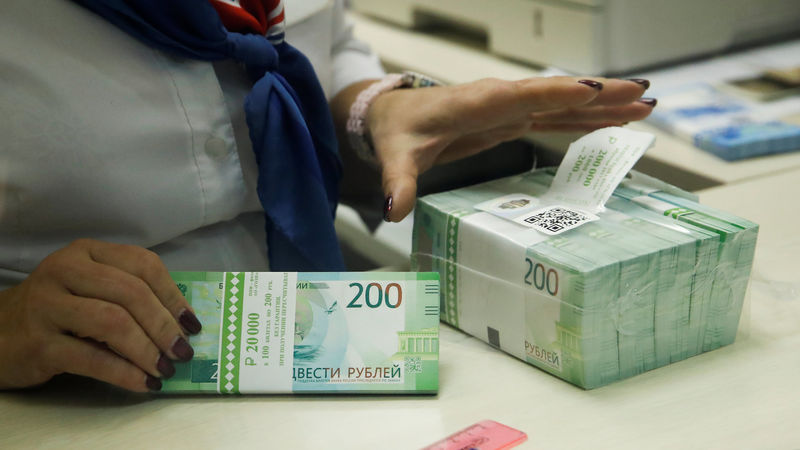(Bloomberg) --
Emerging-market currencies beaten down by Covid-19 fallout may face a fresh round of selling with this week’s release of data expected to show a big drawdown in foreign-exchange reserves.
Mexico’s weekly data is set to come out on Monday, while Indonesia, Taiwan, the Philippines, China, Malaysia, South Africa and Russia are due to issue updates on Tuesday. That comes on the heels of a $9 billion slump in South Korea last month and a $6 billion decline for India since the end of February.
Central banks in emerging economies are tapping reserves to stem a decline in their currencies as the coronavirus pandemic induces a rush into the U.S. dollar as a haven. The sliding stockpiles highlight the quandary they face trying to bring stability amid capital outflows, while ensuring they have ammunition for future actions.
“I expect more weakness ahead for EM currencies as demand for dollars will remain strong,” said Khoon Goh, head of Asia research at Australia & New Zealand Banking Group Ltd. in Singapore “We can expect to see reserves decline further as central banks continue to smooth FX moves and provide liquidity to the market.”
While most emerging-market central banks have greater reserves than they did during the Asian financial turmoil of 1998 and global financial crisis of 2008, the macro economic outlook remains uncertain. The Federal Reserve’s swap lines and a new facility through which developing nations can secure dollars using Treasury holdings will help ease some pressure.
Capital Flight
But expectations the pandemic will cause a global recession are keeping the risk of capital flight elevated in the weakest links of emerging markets. Global funds have scaled back stock investments in South Korea, Brazil and Turkey, while selling off bonds in countries such as India and Indonesia.
The Mexican peso slid to a record low on Monday amid disappointment over the government’s stimulus plans. The nation’s reserves remain near a record high as officials appear reluctant to tap them, while Brazilian and Turkish stockpiles have been sliding.
The faster-than-expected erosion in Russian reserves also clouds the picture for the ruble given oil prices remain vulnerable to the market-share war with Saudi Arabia. India’s central bank has already been using its record foreign-currency arsenal to defend the rupee.
©2020 Bloomberg L.P.
